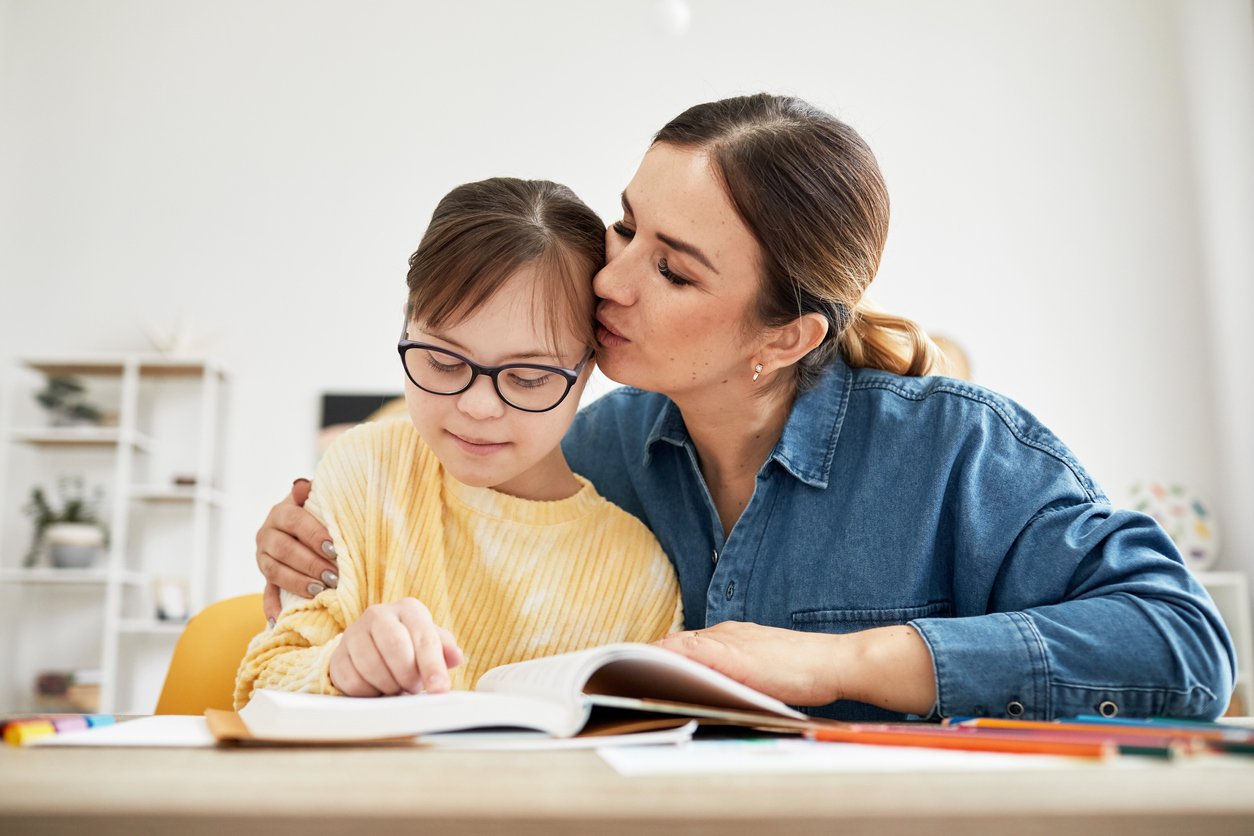How to Help Your Autistic Child Cope With Their Parents’ Divorce
What can divorcing parents do to support their autistic child or teenager through these common challenge areas?
Parental divorce is not necessarily any more common in families with an autistic child, but the resulting challenges seen in children of divorce may be amplified by the presence of neurodiversity.(4&2)
For autistic children, the biggest challenges may exist in domains related to explanations of why parents are getting a divorce, anxiety, change implementation, different parenting techniques, familial belonging, and overall well-being. Furthermore, approaches to these domains can be complicated by legal custody arrangements, co-parenting amicability, and the developmental stage and comprehension level of the child.
To better help autistic youth cope with the initial stress and challenge of the changes divorce can bring, parents need to work together, or independently depending on circumstance, to customize their practices based on their child’s neurodiversity and individual situation.
Developmentally Appropriate Explanations
Regardless of a child’s age or neurotype, explaining divorce and the subsequent changes is difficult for both children and parents, especially since it’s the first step in this major life transition. Universal tips for explaining divorce to youth are to:
- Engage in the conversation with both parents
- Rehearse scripted dialogue and question responses
- And have an early plan set up for future changes in the child’s life
For autistic individuals at an early stage of development, however, parents need to be mindful that their child may take the news literally or may have a delayed or highly emotional response to the upcoming changes. Neurodivergent children can benefit from concrete and compassionate explanations using direct language without euphemisms. Social Narratives can also help walk them through their future after divorce, including greater or reduced parental contact and new environments.
While younger children may largely focus on the routine change aspect, older or higher-developed youth may comprehend more details and implications of their parent's separation. As a result, emotional internalization about their parents’ relationship can be prioritized by discussing divorce details beyond routine changes if determined to be appropriate or helpful. For all ages, emotional reassurance and internal guilt assuagement are essential for helping them cope with the initial news.

Addressing Anxiety and Uncertainty
Autistic individuals thrive on predictability and often depend on consistency for anxiety management. Parental separation often involves major life changes that stress an autistic individual’s equilibrium, including new routines, divided parent time, parental conflict, possible insurance and service provider changes, and general uncertainty.
Autistic individuals of all ages can manifest this anxiety through meltdowns or communication reductions, making mental health support and diligent planning essential for coping. Action steps can include conducting legal or co-parent matters away from children, developing care plans for location or financial changes, and finding a developmentally appropriate family therapist or individual counselor.
Parents can also teach young children calming strategies, offer reassurance, and implement as much predictability as possible in their child’s life. Additionally, communicating clear plans and preparing for life aspects that will change or remain the same can be helpful. Teenagers or further developed individuals similarly crave a sense of control, but parents need to be alert for any signs of mental health distress or substance abuse as an emotional or stress response to the transitions.
Managing Transitions and Change
Undoubtedly, one of the best ways to manage anxiety and encourage skills retention among autistic youth is to stick to a routine. Schedules and task efficiency will vary per parent, but maintaining similar patterns between parents’ arrangements will help immensely with transitions.
Early developing autistic youth can be supported by visual schedules, progressive changes, and social narratives for them to prepare for new situations. Parents can start by practicing independent child care from morning to bedtime routines in their original home to allow the child to adapt to co-parenting in a familiar environment. Then, work towards pre-scheduled parent custody days in separate homes using an organization method so they can understand and review everything they can expect.
Older teenagers may have more independence and choice in how they spend their time, but teaching flexibility is equally important at this stage. Parents will need to slowly integrate changes in transportation, supervision, and quality time. Autistic teens may have a preference for one parent over the other for certain activities, but teaching communication strategies and problem-solving skills will aid them in this transition.
Adapting to Individual Parenting Techniques
Autistic teens and children of divorce depend on their parents to prepare them for their next life stage, which makes consistent parenting techniques paramount for their coping success and development. Parents need to agree and communicate on behavior tracking methods, activities, discipline, and care style. One parent may be more permissive or more strict than the other, but compromises must be made based on what is most effective for the child instead of subjective parenting opinions whenever possible.
Third-party family mediators or qualified therapists can assist parents in independently enforcing rules and routines, which can be particularly useful in cases where young children may need to learn to respect each parent’s authority. Additionally, children need this consistency in behavior management and routines to prevent anxious confusion while nurturing stability.
Teenagers and higher-functioning autistic individuals also need appropriate encouragement and enforcement to avoid the development of maladaptive habits. For instance, they may learn how each parent functions and use that knowledge for personal benefits, such as extended screen time or activity avoidance. To aid teenagers and those transitioning to young adulthood, parents need to work together to unanimously preserve their child’s healthy habits and positive skills after a divorce.

Maintaining a Family Unit and Positive Well-Being
Ultimately, the most effective strategy to help a child cope with parental divorce is to do what’s best for the child’s well-being and future. This doesn’t imply that parents need to refrain from separation, instead, the goal is to mediate conflict and compromise on solutions for the health and happiness of the child with autism.
Furthermore, healthy communication between parents acts as a positive model for young autistic children, as well as meeting their developing needs for love and belonging.1 Maintaining a sense of family unity involving all siblings and both parents through communal activities, equal participation, and honest communication can help kids cope with the massive changes post-divorce.
As a child grows older, co-parenting may become more demanding as parental views may conflict on a child’s condition, formal treatments, and the next steps from teenagehood into legal adulthood. Individual goals and hopes for a child’s future will likely differ, but social workers and school professionals can be invaluable resources for finding the best path for the developing autistic young adult.
Supporting and Helping Autistic Children of Divorce
Following parental separation, mental health effects need to be prioritized by stakeholders to care for the current and future well-being of autistic individuals. Long-term factors of remarriage, step-siblings, shifting parental involvement, and age maturation also need to be considered for the next steps beyond the initial transition period.

Decidedly, autistic youth require compassionate support when coping with the drastic changes resulting from divorce, and more action needs to be taken by researchers and professionals to guide divorced families of neurodivergent children. Increased awareness and communication about this developmental subject will empower parents and children to surmount challenges following divorces, separations, and parental conflict.
What are your experiences and advice with supporting autistic children through divorce? Please share your insights and ideas in the comments section below.
We hope you enjoyed the information in this article. STAGES® Learning also offers free downloadable resources to support teaching and learning with autistic individuals. Start with our free Picture Noun Cards and see our collection of other downloadable resources here!
References
- Cherry, K. (2022, August 14). Maslow's hierarchy of needs. Verywell Mind. https://www.verywellmind.com/what-is-maslows-hierarchy-of-needs-4136760
- Garriga, A., Pennoni, F. The Causal Effects of Parental Divorce and Parental Temporary Separation on Children’s Cognitive Abilities and Psychological Well-being According to Parental Relationship Quality. Soc Indic Res 161, 963–987 (2022). https://doi.org/10.1007/s11205-020-02428-2
- Kauk, Nycole C., "The Experience of Coparenting Within the Parameters of Divorce: Perspectives from Parents of Children with Autism Spectrum Disorder" (2018). Graduate Theses and Dissertations. https://scholarcommons.usf.edu/etd/7312
- Namkung EH, Song J, Greenberg JS, Mailick MR, Floyd FJ. The Relative Risk of Divorce in Parents of Children With Developmental Disabilities: Impacts of Lifelong Parenting. Am J Intellect Dev Disabil. 2015 Nov;120(6):514-26. doi: 10.1352/1944-7558-120.6.514. PMID: 26505872; PMCID: PMC4624231.

Amairani Asmad
Amairani Asmad is a freelancer with a Bachelor of Science degree in Rehabilitation and Human Services from Penn State. Her passion for helping people is motivated by her own experiences as a member and advocate of several marginalized communities. Amairani enjoys the positive impact of writing inclusive content and helping others using her education, personal experiences, and compassionate lens. Her goal is to continue learning while integrating her empathetic support for Neurodivergent, LGBTQIA+, and Latinx communities.




